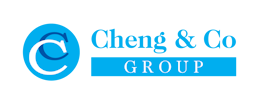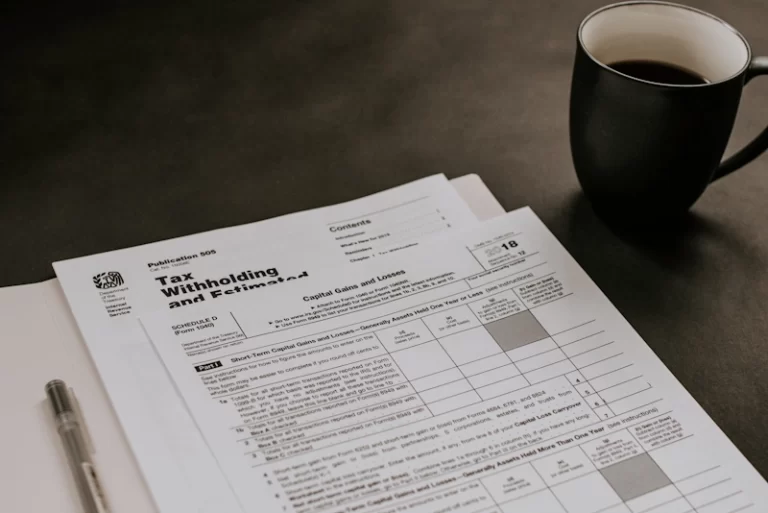Introduction
Welcome to our full guide about tax deductible expenses in Singapore for 2024. This article will help business owners learn what expenses they can claim as deductions according to Singapore’s tax rules for the coming tax year. By using this guide, you can manage your business expenses better and might lower your taxable income.
Understanding tax-deductible expenses is really important for business owners in Singapore. When you know which expenses you can deduct, you can maximize your tax deductions. It also helps you stay within the rules made by the Inland Revenue Authority of Singapore (IRAS). Following these rules reduces your risk of facing penalties. This can also help you plan your business finances better.
This guide will explain deductible and non-deductible expenses. We will talk about different kinds of expenses, such as office rent, equipment costs, travel, and marketing. We will also highlight common mistakes to avoid. This will help you follow the rules and make good choices with your business money.
Definition of Tax Deductible Expenses
Tax-deductible expenses are costs that a business can subtract from its total income. This can reduce the taxable income for tax purposes. The Inland Revenue Authority of Singapore (IRAS) says these expenses must be used “wholly and exclusively” to earn income to qualify for deduction. This means the costs should connect directly to the business and be necessary for making money.
Here are some typical deductible expenses that businesses in Singapore can use to understand better:
- Office Rent: This is the money used to rent a space for the business.
- Equipment Costs: These are the costs to buy and maintain office tools and machines.
- Travel Expenses: This is the money spent on business trips, including travel and lodging.
- Marketing Expenses: These are the funds used for advertising to help the business grow.
- Employee Salaries: This is the pay workers receive for their jobs.
- Professional Fees: These are the payments made for services from professionals like lawyers and accountants.
Understanding these deductible expenses can change your taxes a lot. If you find them correctly, you can use all the deductions offered under Singapore’s tax rules.
Non-Deductible Expenses
Non-deductible expenses are costs that you cannot take away from your total business income to reduce your taxable income. The Inland Revenue Authority of Singapore (IRAS) explains that these expenses usually do not meet the requirement of being spent ‘wholly and exclusively’ to earn income. Therefore, you cannot claim them as deductions when calculating your business’s taxable income. This category also includes legal fees.
Here are some common expenses that businesses in Singapore cannot claim as tax deductions:
- Private and Domestic Expenses: These are personal costs, like living expenses for the owner.
- Motor Vehicle Expenses: You usually cannot deduct costs for personal cars. Some exceptions apply for vehicles used for business.
- Capital Expenditure: This means spending on fixed assets, such as land or buildings.
- Entrance Fees: These are payments needed to join clubs or groups that aren’t related to your business.
- Fines and Penalties: This includes fines for breaking laws or rules.
- Medical Expenses: This covers costs for medical and dental care unless they are included in employee benefits.
- Prayer Expenses: These are costs for religious activities or gifts.
Understanding non-deductible expenses is key for following IRS rules. If you make mistakes when claiming these expenses, you might face penalties and extra charges. This could hurt your business.
Office Rent and Equipment Costs
Knowing which expenses you can deduct from your taxable income is important. It can help to improve your business’s financial results. A large part of these deductible expenses is the cost of your office rent and equipment.
Office Rent
Office rent is allowed as a business expense under the rules of the Singapore Inland Revenue Authority (IRAS). You can claim the rent for locations used only for business purposes, like real estate. It is important to keep clear documents, such as rental agreements and payment receipts, to back up these claims.
Equipment Costs
Equipment costs are the money you spend to buy, rent, or maintain the tools needed for running a business. You can claim these costs as deductions if they meet the specific rules from IRAS.
Types of Deductible Equipment Costs
- Office Equipment: This includes costs for things like computers, printers, and furniture for the office.
- Machinery and Tools: This is money spent on machines and tools used for making or producing items.
- Software: These are the costs for buying or subscribing to software that helps in business.
- Maintenance and Repairs: This includes expenses for taking care of and fixing business equipment.
Examples of Deductible Office Rent and Equipment Costs
- Office Rent: This is what you pay every month for a space fixed for business work.
- Computer Equipment: This is the purchase of laptops and desktops for employees.
- Office Furniture: These are the costs for desks, chairs, and other office furniture.
- Software Subscriptions: This means the yearly fees for accounting software, CRM systems, or other business apps.
- Machinery Maintenance: These are regular costs for ensuring manufacturing machines are well maintained.
By finding and claiming these deductible expenses correctly, businesses can reduce their taxable income. This helps them save money on taxes. Make sure to check the IRAS website for the most recent guidelines. Always follow all the rules and regulations.
Travel Expenses
Travel expenses are common costs for small businesses. You can deduct these costs from your taxable income if they are for business purposes. The Inland Revenue Authority of Singapore (IRAS) says that small business owners can claim these travel expenses as deductions. This is possible if the expenses are essential and directly related to business activities on your tax return.
Claiming Travel Expenses
To claim travel expenses as deductions, businesses need to show that these costs are real. They must keep good records. This includes travel schedules, receipts, and expense reports. It is also important that the travel is for business purposes, such as going to meetings, attending conferences, or visiting clients.
Types of Deductible Travel Expenses
- Airfare: The price of flights for business purposes.
- Accommodation: Hotel expenses during business trips.
- Local Transportation: Taxi rides, public transport, or car rentals needed for business purposes.
- Meals and Entertainment: Costs for food and entertainment that are linked to business trips.
- Travel Insurance: Insurance fees for business travel.
Examples of Deductible Travel Expenses
- Airfare: A round-trip ticket for a manager to attend an international conference.
- Accommodation: Hotel rooms for employees on a business trip to see clients.
- Local Transportation: Taxi rides for going to and from meetings in the city.
- Meals and Entertainment: Dinner with a possible client during a business trip to talk about business.
- Travel Insurance: Insurance purchased for an employee going overseas for a work project.
By keeping good records and claiming travel expenses the right way, businesses can get more tax deductions. This practice will also help them follow the rules from IRAS. For more details, visit the official IRAS website.
Marketing Expenses
Marketing costs play a key role in growing your business. In Singapore, you can claim these costs as tax-deductible expenses if they are used to earn business income. The Inland Revenue Authority of Singapore (IRAS) says that to qualify for tax deductions on marketing expenses, they need to be essential and clearly connected to your business activities.
Claiming Marketing Expenses
To get tax cuts on marketing costs, businesses must have the correct documents and reasons for these expenses. They should keep invoices, receipts, contracts, and other key papers that show the marketing work and its connection to the business. It’s crucial to demonstrate that the money spent was for promoting the business and increasing income.
Types of Deductible Marketing Expenses
- Advertising Costs: This is the money spent on ads in places like newspapers, online, or on TV and radio.
- Promotional Events: This is the money used to plan and run events to promote the business.
- Social Media Marketing: This is the money for social media ads and creating content.
- Branding and Design: This is the money spent on making and designing marketing materials like logos, brochures, and business cards.
- Market Research: This is the money spent on surveys, focus groups, and other research to understand market trends and what customers want.
Examples of Deductible Marketing Expenses
- Advertising Costs: The price for a full-page ad in a leading business magazine.
- Promotional Events: The money used for a product launch event, such as renting the space and providing food.
- Social Media Marketing: The budget for ads on Facebook and Instagram to connect with potential customers.
- Branding and Design: The costs for hiring a graphic designer to create a new logo for the company.
- Market Research: The costs for a customer satisfaction survey to gather feedback and improve services.
By keeping an eye on their marketing costs and stating them correctly, businesses can increase their tax deductions. This practice also helps them follow the rules from IRAS. For more details and clear guidance, please visit the official IRAS website.
Common Mistakes and Pitfalls to Avoid
When businesses in Singapore want to claim tax deductible expenses, they should carefully follow the rules set by the Inland Revenue Authority of Singapore (IRAS). Here are some usual mistakes to avoid. This will help you stay on track and make the most of your tax deductions.
Common Mistakes Made When Claiming Deductible Expenses
- Not Keeping Good Records: If you do not save receipts, invoices, and contracts, your claims could be turned down.
- Blending Personal and Business Costs: A mistake many make is calling personal expenses as business costs. This can lead to fines.
- Wrongly Classifying Expenses: If you label your expenses incorrectly, like calling revenue expenses as capital expenses, your claims might be wrong.
- Ignoring Specific Deduction Rules: If you do not stick to the rules for some costs, like travel or entertainment, your deductions could be refused.
Potential Consequences of Non-Compliance
- Not following IRAS guidelines can cause serious issues for businesses, including:
- Money Penalties: If you make false claims, it can lead to money penalties, extra taxes, and interest fees.
- Checks and Reviews: Not sticking to the rules can lead to audits and reviews by IRAS. This may result in more checks and possible legal issues.
- Damage to Reputation: Frequently breaking the rules can harm the business’s reputation. This might change how stakeholders and customers view it.
Tips to Avoid Mistakes and Ensure Compliance
- Keep Accurate Records: It’s important to have clear and organized records of all your business expenses. They should be easy to read when you need them.
- Separate Your Expenses: Use different accounts for personal and business expenses. This helps prevent mistakes and confusion.
- Know IRAS Guidelines: Learn about the latest IRAS rules and tax laws. This helps you know how to categorize your expenses correctly and follow the rules.
- Get Help from a Tax Agent: Speak with a qualified tax agent or consultant. They can review your claims and provide advice on complicated tax topics.
- Review Your Claims Often: Regularly check your expense claims. This ensures they are correct and aligned with IRAS guidelines.
By avoiding common mistakes and following IRAS rules, businesses can handle their tax deductible expenses better. This helps reduce the risk of breaking the rules. For more detailed information and updates, visit the official IRAS website.
Conclusion
In this easy guide about tax deductible expenses in Singapore for 2024, we will cover several key points that business owners need to know.
- Definition of Tax Deductible Expenses: We discussed what deductible expenses are for businesses in Singapore. We provided some examples.
- Non-Deductible Expenses: We explained expenses that you cannot deduct. This helps businesses avoid common errors.
- Specific Expense Categories: We talked about office rent, equipment costs, travel expenses, and marketing costs in detail. We gave examples of how to claim these.
- Common Mistakes and Pitfalls: We showed common mistakes when claiming deductions. We mentioned what can happen if businesses do not follow the IRAS guidelines. We also shared tips to avoid these mistakes.
Understanding tax deductible expenses is important for managing your business finances. It also helps you follow IRAS rules. If you handle and claim these expenses correctly, it can have a big impact on your income tax and overall financial health.
We think you should read this article to get to know the Singapore tax system. If you keep informed and follow the rules, you can make the most of your income tax deductions. This way, you can stay clear of any issues.
For regular updates and more information, always visit the official IRAS website. Stay engaged in managing your business costs. This will help you follow the rules and keep your finances healthy.
What are some common tax deductible expenses for a company?
Common tax-deductible expenses for a business include employee salaries, office rent, utilities, business insurance, advertising costs, travel expenses, and depreciation on equipment. These costs can lower the taxable income of the company. This can help decrease the overall tax liability.
How can a company ensure that their expenses are tax deductible?
Companies need to keep good records to ensure their expenses are tax deductible. They should sort their expenses properly. It is important to follow tax laws and keep papers like receipts and invoices. Asking tax professionals for help can make it clear which expenses can be deducted for their business.
What are some often overlooked tax deductible expenses for companies?
Some tax-deductible expenses that companies often forget are costs for home offices, employee training, bank fees, and expenses for company events or parties. It is important to keep good records. It is also a good idea to talk to a tax professional. They can help you figure out how to use these deductions.





